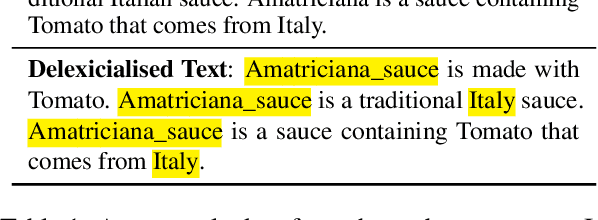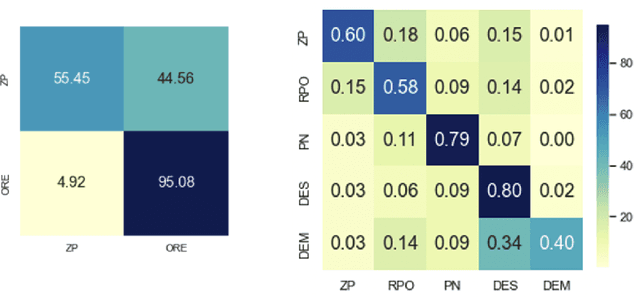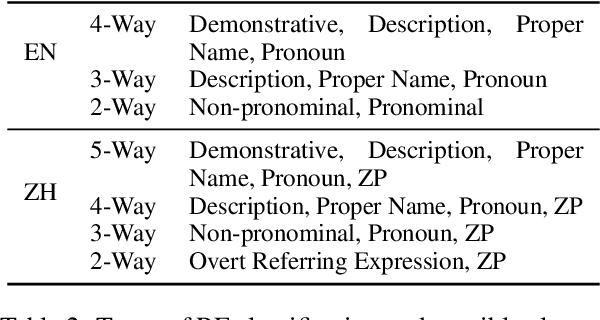Assessing Neural Referential Form Selectors on a Realistic Multilingual Dataset
Paper and Code
Oct 11, 2022



Previous work on Neural Referring Expression Generation (REG) all uses WebNLG, an English dataset that has been shown to reflect a very limited range of referring expression (RE) use. To tackle this issue, we build a dataset based on the OntoNotes corpus that contains a broader range of RE use in both English and Chinese (a language that uses zero pronouns). We build neural Referential Form Selection (RFS) models accordingly, assess them on the dataset and conduct probing experiments. The experiments suggest that, compared to WebNLG, OntoNotes is better for assessing REG/RFS models. We compare English and Chinese RFS and confirm that, in line with linguistic theories, Chinese RFS depends more on discourse context than English.
* Eval4NLP workshop
 Add to Chrome
Add to Chrome Add to Firefox
Add to Firefox Add to Edge
Add to Edge